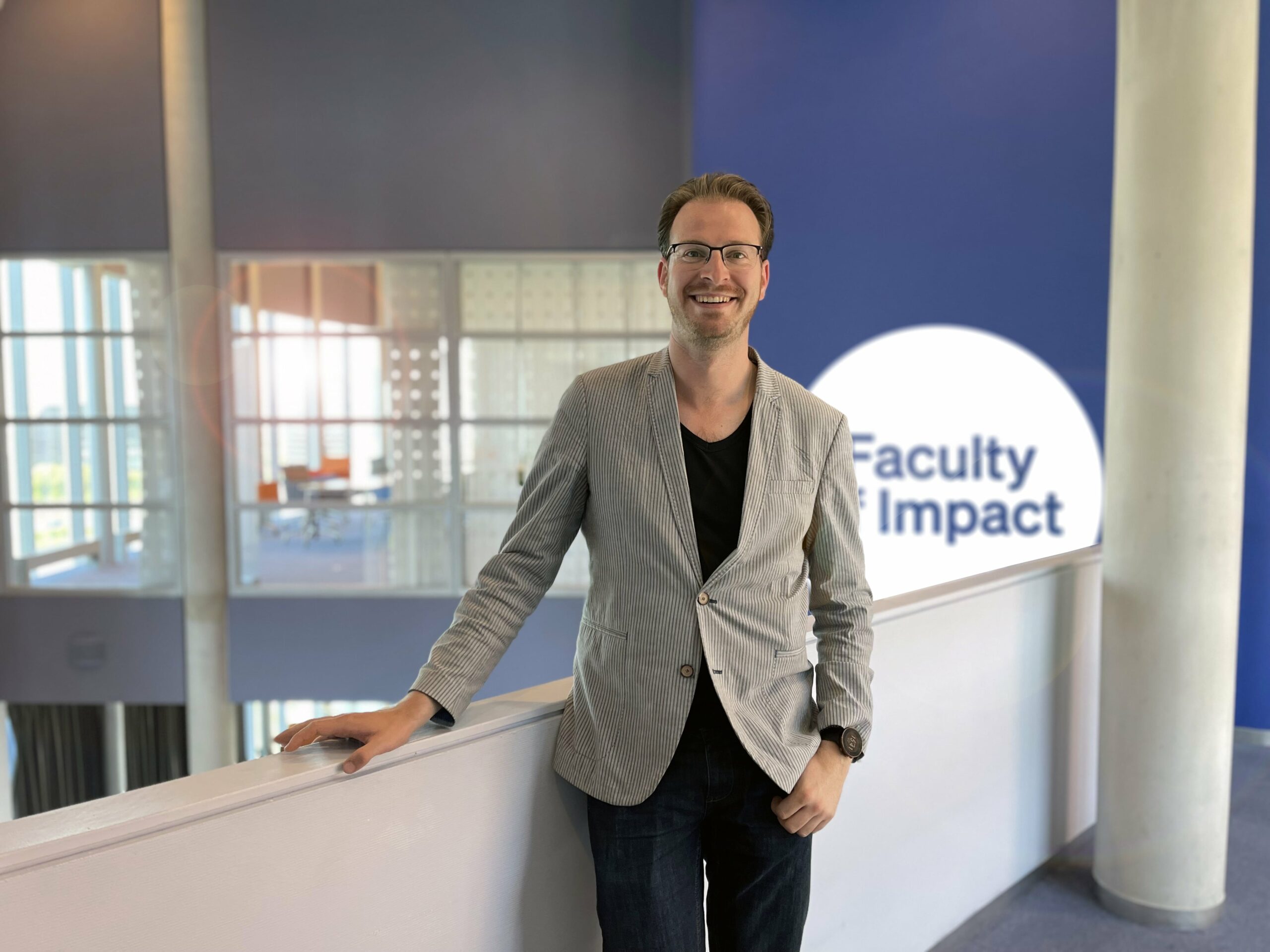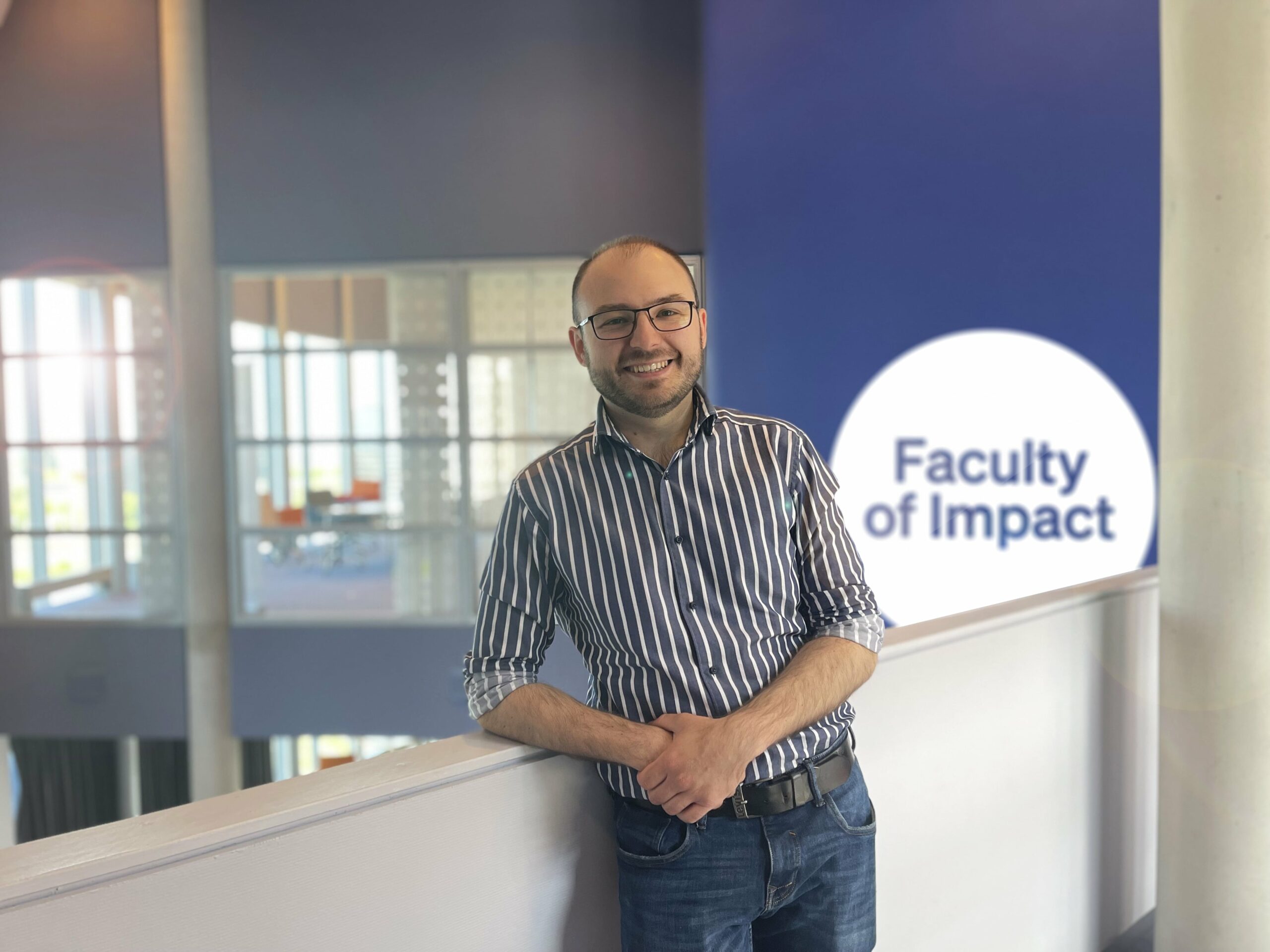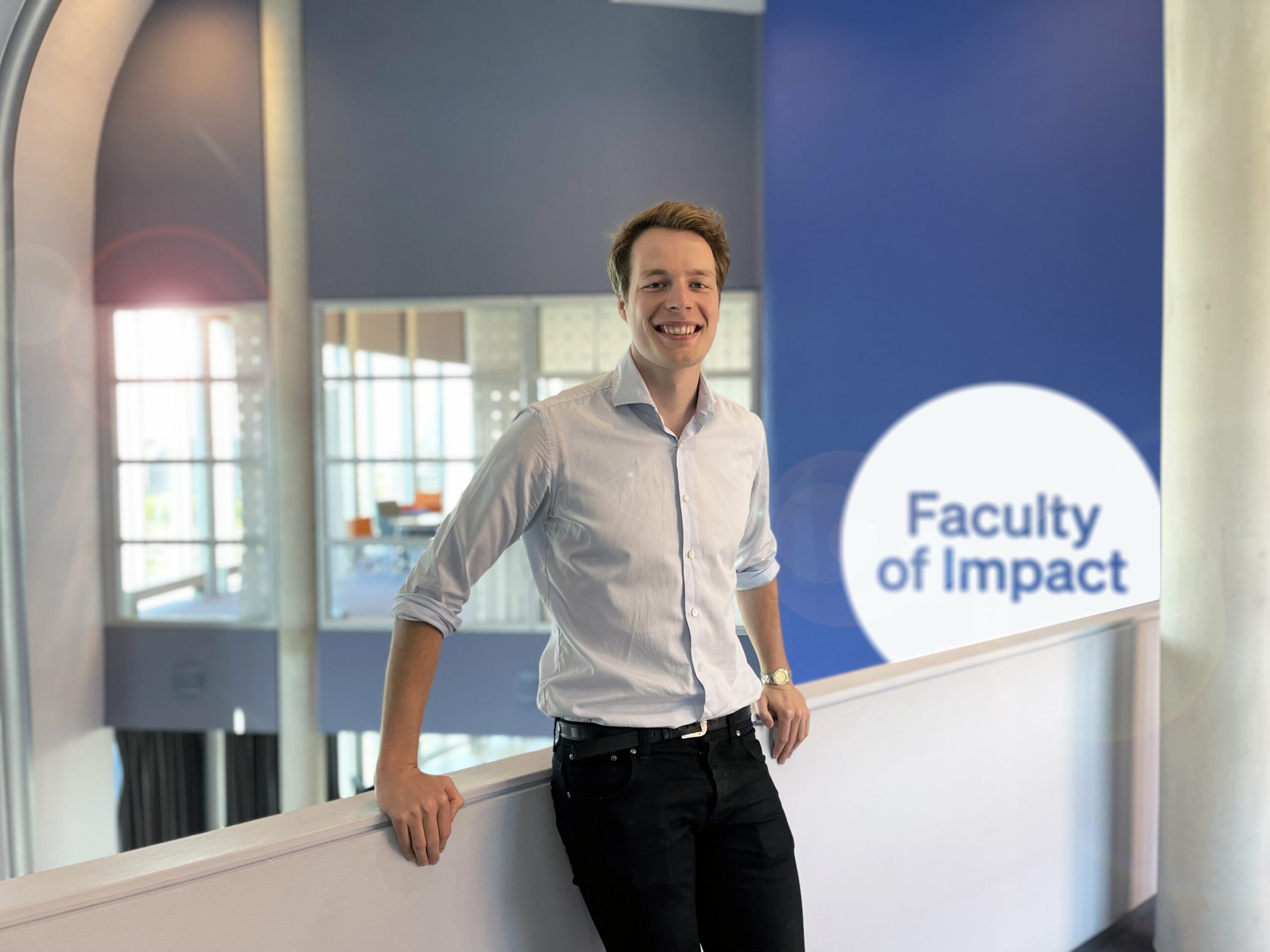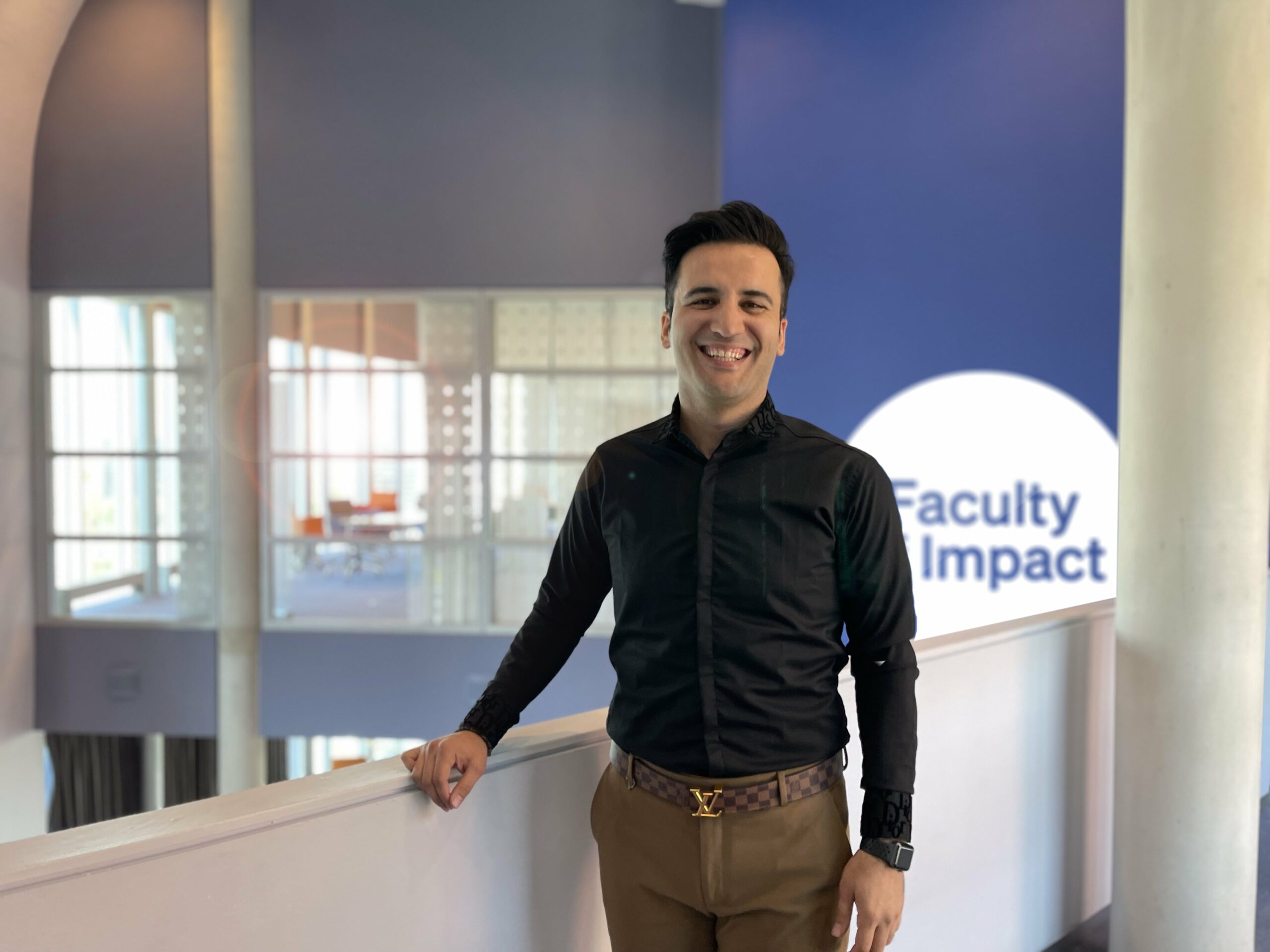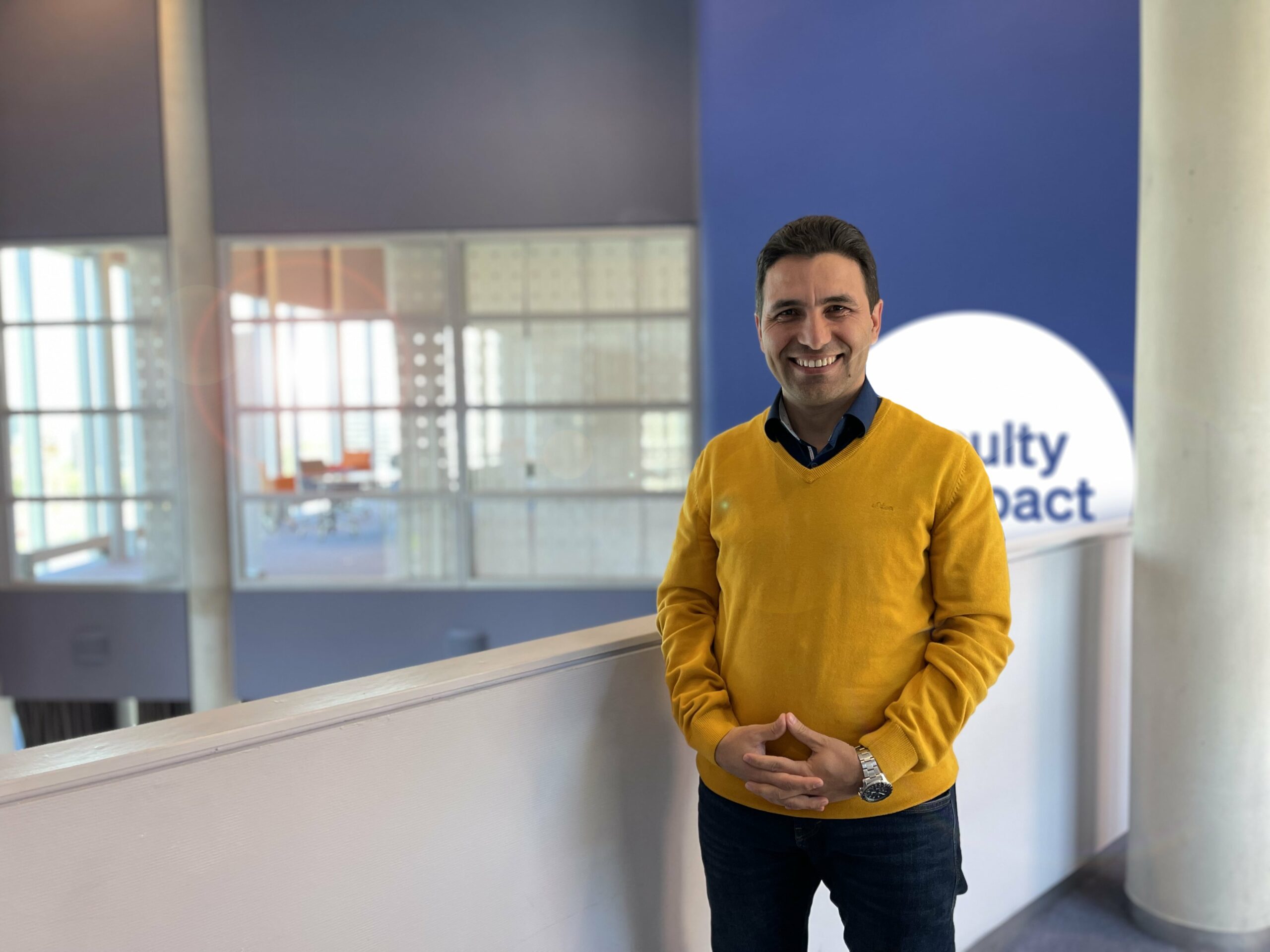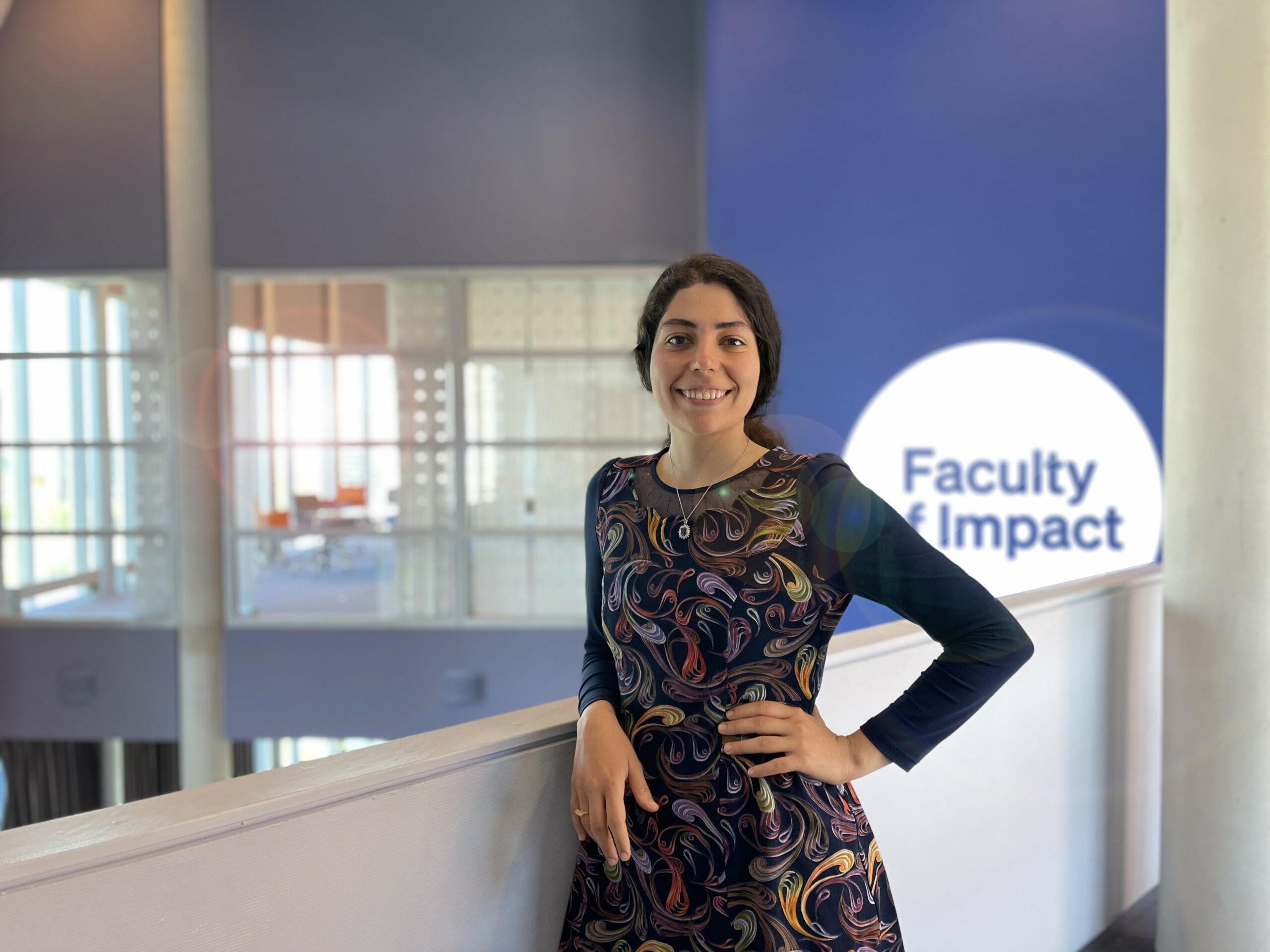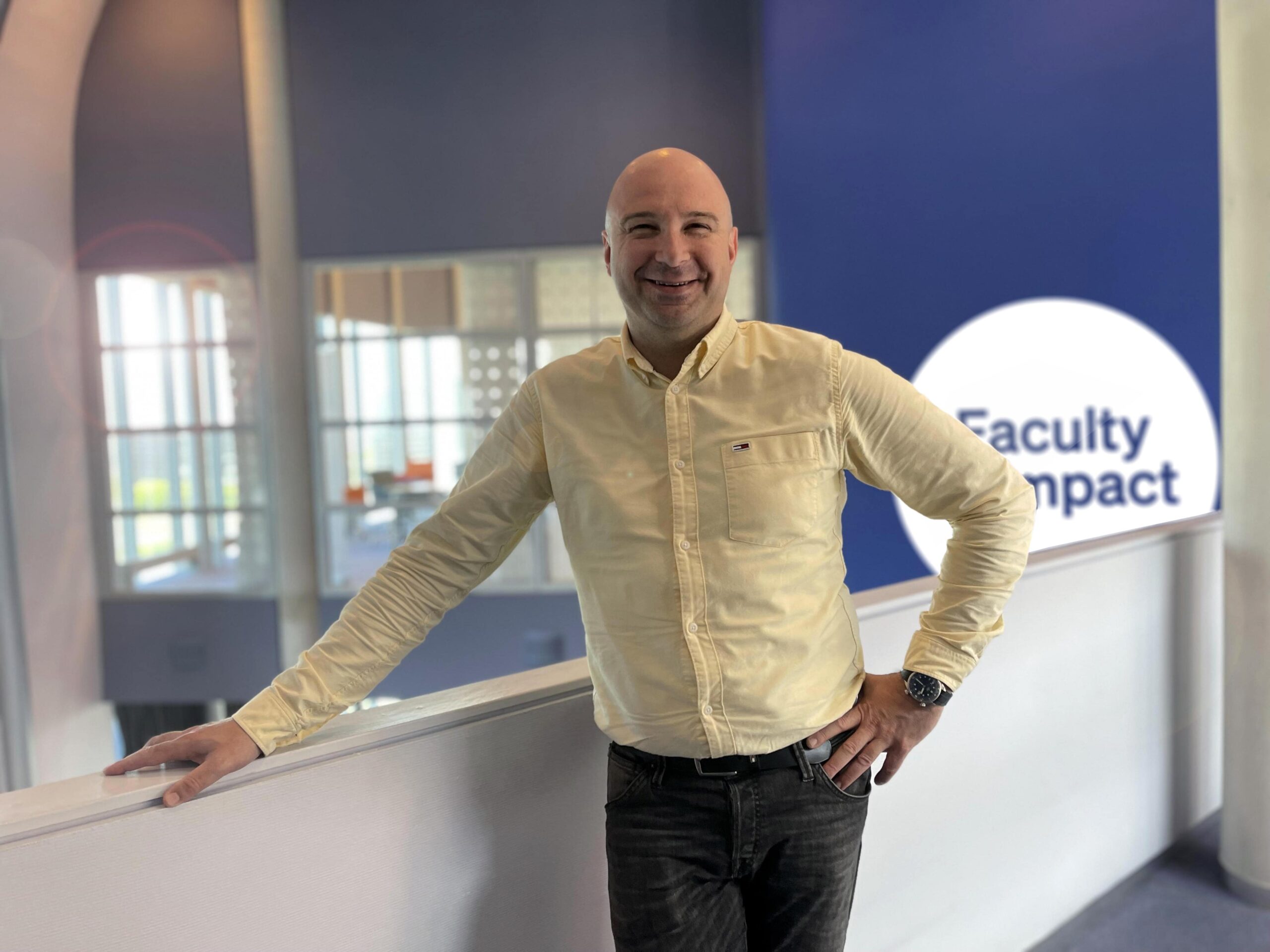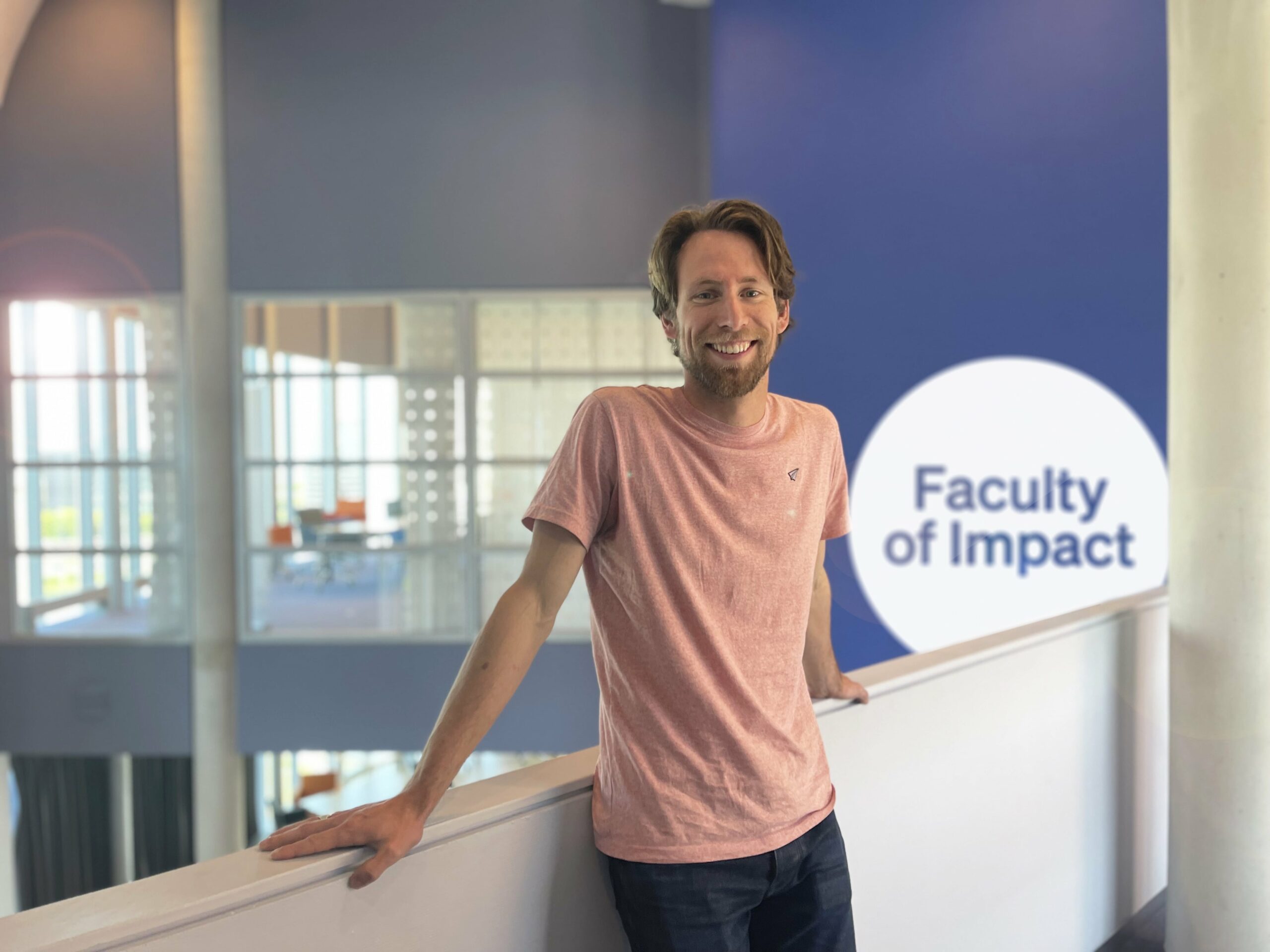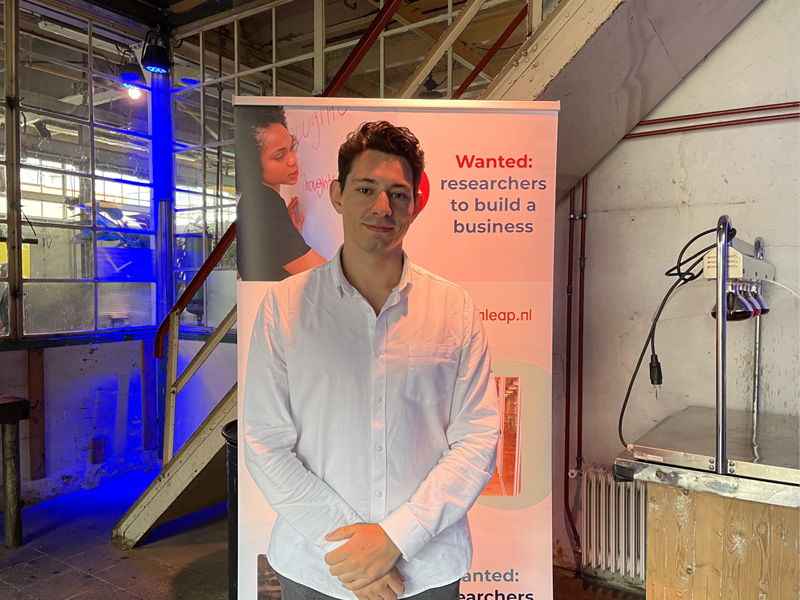Meet the fellows
Here’s our first group of fellows. Their research focuses on sustainability.
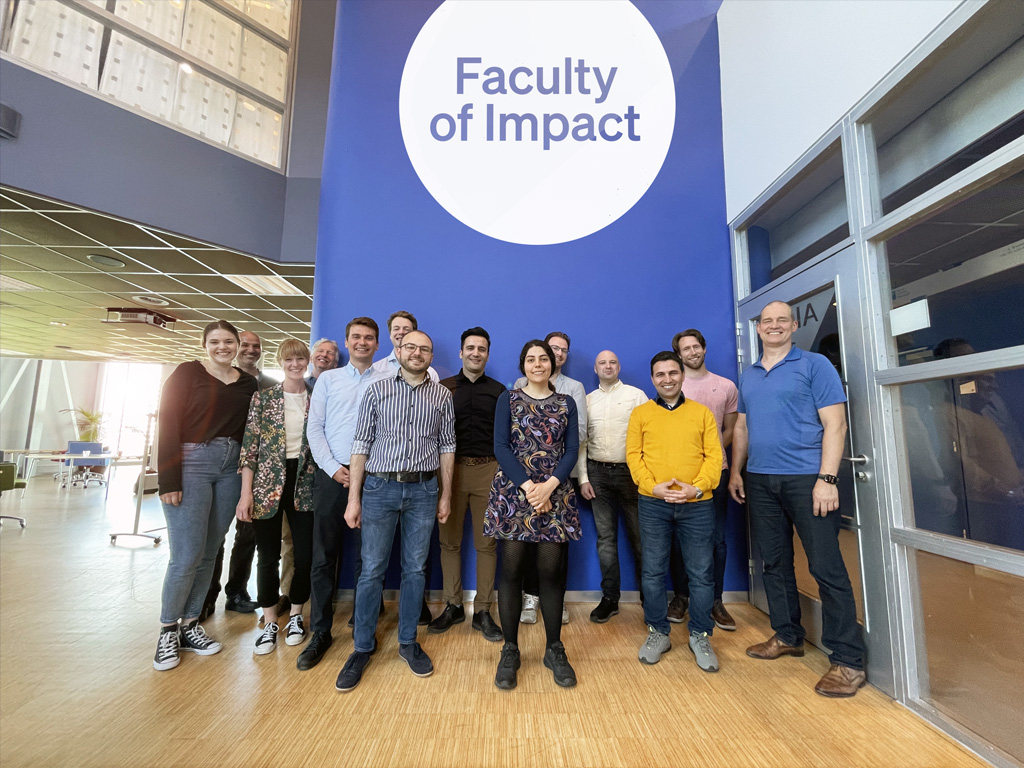
Tijmen Bakker
Universiteit van Amsterdam
Solar cells that capture indoor light
Say goodbye to the frustration of low batteries! At the University of Amsterdam, we have developed innovative solar cells tailored for indoor use. No more annoying beeps from smoke detectors or struggling with remote control buttons. Our specialized solar cells are designed to harness ambient light, ensuring devices like remotes and detectors never run out of power. With these cutting-edge cells, you can say goodbye to the hassle of replacing batteries. Embrace a future where solar-powered devices enhance convenience and eliminate battery-related inconveniences.
Sorin Bunea
TU Delft
Sustainable ammonia synthesis powered by renewable electricity
We recently invented a highly efficient continuous electrochemical ammonia synthesis process from gaseous nitric oxide. This project aims at demonstrating the technology under commercially-relevant conditions, evaluating economic viability and developing future solutions for decentralized, CO2 emission-free production process of ammonia which is the primary ingredient for fertilizers and a promising liquefiable chemical energy carrier. Effects of feed composition, materials/process stability and scale-up feasibility will be studied, and a thorough techno-economic analysis will be performed.
Rik van Gorp
Technische Universiteit Eindhoven
Heratec: Transformative porous electrodes for electrochemical devices
Developing green technologies that leverage efficient interconversion of electrical and chemical energy is essential to decarbonize the electric grid, power the heavy-duty transportation fleet, and to enable sustainable chemical manufacturing. At the core of these electrochemical devices, porous electrodes play an integral role as their design governs the performance, durability and consequently the cost of next-generation electrochemical systems. With Heratec’s innovative technology, we solve the fundamental challenge of multiphase transport within gas diffusion electrodes by leveraging revolutionary porous electrode design and localized functionalization methods. Our solution enables transformative performance improvements and cost reductions in hydrogen technologies, energy storage, and electrofuels.
Hossein Karimi
Technische Universiteit Eindhoven
Carbonsai: Carbon‐Free Non‐Reinforced Precast Concrete Solutions
Globally, non‐reinforced precast concrete accounts for 350 million tonnes of CO2 emissions annually, twice the Netherlands’ CO2 emissions in 2020. In this project, a breakthrough method for decarbonizing precast concrete is implemented, including a novel concrete formulation and curing process. The experimental results have proved that concrete mixtures produced by this method not only meet strength criteria for non‐reinforced precast concrete, but also cut its carbon footprint by more than half. Given the large market of non‐reinforced precast concrete, my idea has the potential of reducing millions of tonnes of CO2 emissions annually.
Mohammad Kojourimanesh
Technische Universiteit Eindhoven
Acoustic and Thermo‐Acoustics Design of Low‐Carbon Technologies and reducing Noise Pollution
One of the crucial problems of Low‐Carbon systems based on hydrogen as energy‐carrier, Heat‐Pumps, and HVAC is the inherent noise of thermo‐acoustic and fluid‐dynamic origin. The proposal introduces a novel, robust, cheap, and efficient solution applicable to various energy transition systems. A flexible recently invented, studied and laboratory tested compact‐broadband muffler is purposefully designed to be incorporated into such energy‐appliances resulting in the elimination of thermo‐acoustic noise and/or reduction of environmental noise as well as household appliances’ noise. Introducing such mufflers during the design‐phase drastically reduces the development‐cost, facilitates the energy transition, and contributes to a sustainable and healthy life.
Rose Sharifian
TU Delft
SeaO2: turning carbon capture from seawater into business
To mitigate climate change, CO2 capture from the environment is inevitable. Electrochemical CO2 capture methods have high potential thanks to their green chemistry and their native fit in a transition towards renewable electricity. Among electrochemical carbon capture methods, particularly, using bipolar membrane electrodialysis (BPMED) for oceanic carbon capture is promising as it does not produce/require any harmful chemicals, needs no regeneration, and our profound experience allows us to rapidly upscale this process. The capture products, CO2(g) and/or CaCO3(s), provide an opportunity to commercialise as green feedstock in the food industry, greenhouses, synthetic fuels, etc, while providing a circular carbon economy. Our startup SeaO2 is taking on the challenge.
Stas Verichev
TU Delft
VibroTwist: a game changing pile driving and removal technology
Vibrotwist, a TU Delft spin-off, is revolutionizing pile driving with a technique dubbed Gentle Driving of Piles (GDP). GDP is a game-changer for offshore pile driving, drastically reducing noise and related costs, such as those for bubble curtains. It’s proven effective in diverse soil types and exceeds conventional pile driving methods. This environmentally friendly approach significantly cuts CO2 emissions, making windpark installations more cost-efficient and quicker. In the broader context, GDP aids the Energy Transition and contributes to the Circular Economy by fully extracting monopiles during decommissioning. The Faculty of Impact grant presents Vibrotwist’s director with an opportunity to refine entrepreneurial skills, steering the company towards success.
Sem Vijverberg
Vrije Universiteit Amsterdam
Stabilizing electricity grids and maximizing feed-in of renewables with AI-based forecasts several weeks ahead
The massive transition towards renewables combined with more frequent climate extremes is strongly increasing energy market volatility. Reliable weather forecasts weeks to months ahead are urgently needed to support stakeholders in the energy sector to optimally plan production, maintenance, resources, and distribution. Our Artificial Intelligence based forecasts outcompete those of operational systems and have the potential to disrupt the modus operandi in the energy sector. Forecast products for the energy sector would support the transition to resilient and sustainable energy systems by 1) keeping energy affordable, (2) optimizing the share of renewables and (3) fostering energy security.
Aytac Yilmaz
TU Delft
Designing a robust and efficient iron-air battery via microstructure and surface engineering – A new generation, cost-effective and long-duration renewable energy storage solution
Renewable energy generation has increased rapidly over the last decades. However, the energy supply strongly depends on CO2-rich resources during periods of extreme weather conditions or peaks in demand. This is due to the absence of long-duration energy storage technology. Moreover, the current energy storage systems are based on scarce and critical materials. This project provides a breakthrough, long-duration, and cost-effective energy storage solution, based on some of the most abundant materials: iron, air and water. This technology will permit 100% renewable energy in electricity grids, energy self-sufficient households and industry, continuous energy access in remote areas, and more.
Yari Foelen
Technische Universiteit Eindhoven
Useeble: temperature indicators
Low-cost indicators are useful for quality control of temperature sensitive processes such as sterilization and deterioration. These indicators provide a color shift to accurately represent the temperature exposure as a warning for crucial quality loss. Our solution presents a tunable ink for a tailored indicator response that fits a specific product sensitivity. The ink is printable and embeddable in packaging for example as an alternative for static expiration dates. The clear color change offers a facile readout of the quality, ultimately resulting in process optimalisation, less waste and a more sustainable consumption.
